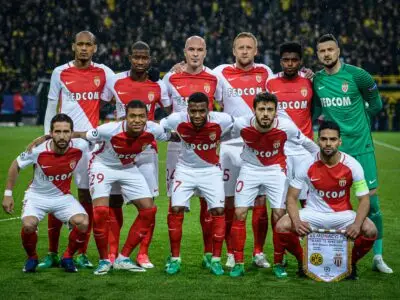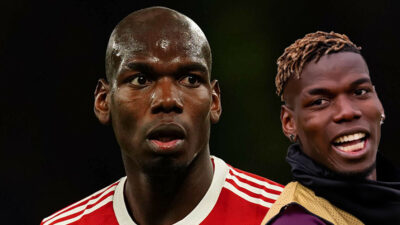In a country renowned for efficiency and fine-grained machinery, Thomas Muller stands out as the absolute embodiment of this ethos on the pitch.
The wide-smiling Bavarian excels in multiple attacking positions, scoring hundreds of goals and winning numerous titles, including the 2014 World Cup.
Müller, aside from being a lethal marksman, enjoys self-deprecating humor; he had this to say one time: “I’m starting to get the feeling that I can do more with my left foot than just fetch beer.”
From making a blistering appearance at the 2010 World Cup to finally hanging up his boots for die Mannschaft in 2024, this is the story of the enigmatic Thomas Muller.
Early life and Youth Career
Thomas Muller was born on September 13, 1989, in Weilheim, Oberbayern, a town in the Upper Bavaria region of Germany,
He began his football journey with TSV Pähl at age 4; his natural talent and instinct on the pitch quickly marked him as a standout as he would go on to join Bayern Munich’s youth academy at age ten and would rise quickly through the ranks due to his football intelligence, versatility, and goal-scoring ability.
At Bayern Munich’s academy, Muller developed his skills and understanding of the game. He progressed through the various youth teams, consistently demonstrating his versatility, intelligence, and instinct for being in the right place at the right time.
Although he was not the most physically dominant player, his football IQ and work rate set him apart from others.
By 2008, he was regularly playing for Bayern Munich II, the club’s reserve team, where his performances further cemented his status as one of the top prospects in German football.
His youth career ended in 2009 when Louis van Gaal promoted him to Bayern Munich’s first team.
2010: Breakout Year for Thomas Muller
After being promoted to Bayern Munich’s first team, Muller quickly established himself as a key player for the club.
During the 2009-2010 season, Muller played a massive role in Bayern Munich’s success. Featuring 52 times in all competitions for the Bavarians, he scored 19 goals and delivered numerous assists.
This output was even more impressive, considering he was deployed in several positions. In attack, he featured on the wings as a center forward and a support striker.
In midfield, he played as an attacking midfielder who often dropped deeper to facilitate buildups.
Müller’s performances were crucial in helping Bayern Munich secure a domestic double, winning both the Bundesliga and the DFB-Pokal (German Cup). The team also reached the Champions League final, losing to Jose Mourinho’s Inter Milan.
His outstanding performance throughout the season earned him the Bundesliga Rookie of the Year award as well as a spot in Germany’s squad for the 2010 FIFA World Cup in South Africa.
Although relatively unknown on the international stage at the time, Thomas Muller emerged as one of the tournament’s breakout stars.
He helped Germany to a third-place finish in the tournament, scoring five goals and producing three assists. His performance earned him the Golden Boot as the tournament’s top scorer and the Best Young Player Award.
Winning the World Cup
In 2014, Thomas Muller was selected to represent Germany at the 2014 FIFA World Cup in Brazil.
Muller was on fire again for the Germans, scoring five goals and producing three assists. This included a hat trick against Portugal in the opening group stage fixture and two goal contributions in the 7-1 demolition of Brazil in the semifinals.
This was a very successful tournament for the Germans, as they emerged as the winners of the trophy, defeating Argentina by a lone goal after extra time. This was Germany’s fourth overall World Cup triumph.
Struggles with the national team
While Thomas Müller had a highly successful international career, there were periods when he faced struggles with the German national team.
After the 2014 World Cup, Germany was expected to be tournament favorites for the 2016 European Championships. However, Germany failed to live up to the high expectations, with a quarterfinal exit courtesy of France.
Muller’s performance at the tournament was notably underwhelming, with the forward failing to score any goals.
The 2018 World Cup served as a platform for Muller and the Germans to reinstate themselves as one of the best national teams in the World and defend their title. But they failed to deliver, crashing out in the group stages in a catastrophic display by the Germans.
Based on his reputation, Muller was poised to be one of Germany’s key players at the tournament but failed to score a single goal again. Muller showed glimpses of his quality at the 2020 European Championship, which took place in 2021 due to the COVID-19 pandemic.
Unfortunately, Germany was eliminated in the Round of 16 by England, and he missed a crucial chance in that match, which nailed Germany’s coffin.
Since then, Muller has faced challenges with injuries and tactical adjustments, which affected his form and impact on the field.
He also experienced a phase of exclusion from the national team, a decision taken by Joachim Low in a bold plan of restructuring the national team to introduce younger players and freshen up the squad.
Considering his inconsistent performance for the national team prior to the decision, it did seem fair and just. Hansi Flick later reinstated him into the national team as a reinforcement of experience and leadership for the team.
Becoming a Legend at Bayern Munich
Thomas Muller has solidified his status as a Bayern Munich legend through his remarkable contributions to the club over many years.
He is incredibly resilient on the pitch. In a sport where injuries are almost inevitable, his ability to stay fit and consistently perform at the highest level is adored by Bayern fans. They’ve praised him for his exceptional durability, racking up hundreds of games in the process.
His achievements and the numerous titles he has won with the club are worth mentioning. He has several Bundesliga titles with Bayern, winning the titles eleven times in a row from 2013 to 2023.
He also won two Champions League and six DFB-Pokal titles, amongst several other international titles. This incredible haul of trophies makes him the most decorated player in Bayern Munich’s history.
Muller has set records for appearances and goals, becoming one of Bayern Munich’s all-time greats in terms of both statistics and impact.
He holds the record for the most appearances for the club and is the third all-time goal scorer in the club’s history.
Overall, his extraordinary career at Bayern Munich, characterized by his loyalty, achievements, and influence, has firmly established him as one of the club’s greatest legends.
Winning the Treble
Muller was a key figure in Bayern Munich’s historic treble-winning season in 2012-2013.
Bayern Munich won the UEFA Champions League, defeating Borussia Dortmund 2-1 in the final held at Wembley Stadium in London. Muller scored the equalizing goal in the 68th minute before Arjen Robben won it in extra time.
Thomas Muller also played a pivotal role in helping Bayern secure the Bundesliga title, finishing the season as champions with a significant lead over second-placed Borussia Dortmund. He then capped off the season with a goal against VfB Stuttgart in the DFB-Pokal final.
These victories put Thomas Muller, Manuel Neuer, Toni Kroos, and other legends in the rarefied air of German greats.
Thomas Muller the Raumdeuter
Thomas Müller is the definition of “Raumdeuter,” which translates to “space interpreter” or “space investigator” in English–which is a description of Müller’s unique playing style and his role on the field.
His understanding of space and how he utilizes it on the pitch is very exceptional. He possesses intuitive positioning, which allows him to receive the ball in dangerous areas. His unconventional movements off the ball allow him to evade opposing defenders and create openings for himself and his teammates.
As a Raumdeuter, Muller is not limited to only one position. His versatility allows him to adapt his positioning based on the flow of the game. His ability to link up play, contribute goals, and assists highlights his importance in attack.
Due to his unique playing style, his tactical impact on the pitch is top-notch. He creates opportunities for his teammates by drawing defenders and opening up spaces as a result of his positioning. His roles often require him to adapt to different tactical setups and work with several teammates.
Ultimately, Muller’s success as a Raumdeuter has influenced how attacking players like Florian Wirtz and Kai Havertz approach the game.
The Last Dance
The 2024 Euros should have been the last dance for Toni Kroos, Thomas Muller, Manuel Neuer, and the 2014 class. However, they crossed paths with an indomitable Spanish team in the quarterfinals.
And with the Mikel Merino header, the hopes of an entire generation at redemption came crashing to the floor.
Recently, Thomas Muller announced his retirement from the national team. This marks the end of an era for those of us who watched him burst onto the scene in South Africa.
When his contract with Bayern Munich runs out in 2025, the world of football will undoubtedly miss Thomas Muller’s vibrant personality and quirky remarks.
Whether he decides to go to America or become a media personality, I’ll always cherish the memories of prime Thomas Muller.
Who wrote this?
Ebuka is a tech enthusiast, writer, and eSports guru currently working with a team of daring Africans to revolutionize the writing scene. He enjoys answering questions, brainstorming new ideas, and discussing the future of sports and esports.























